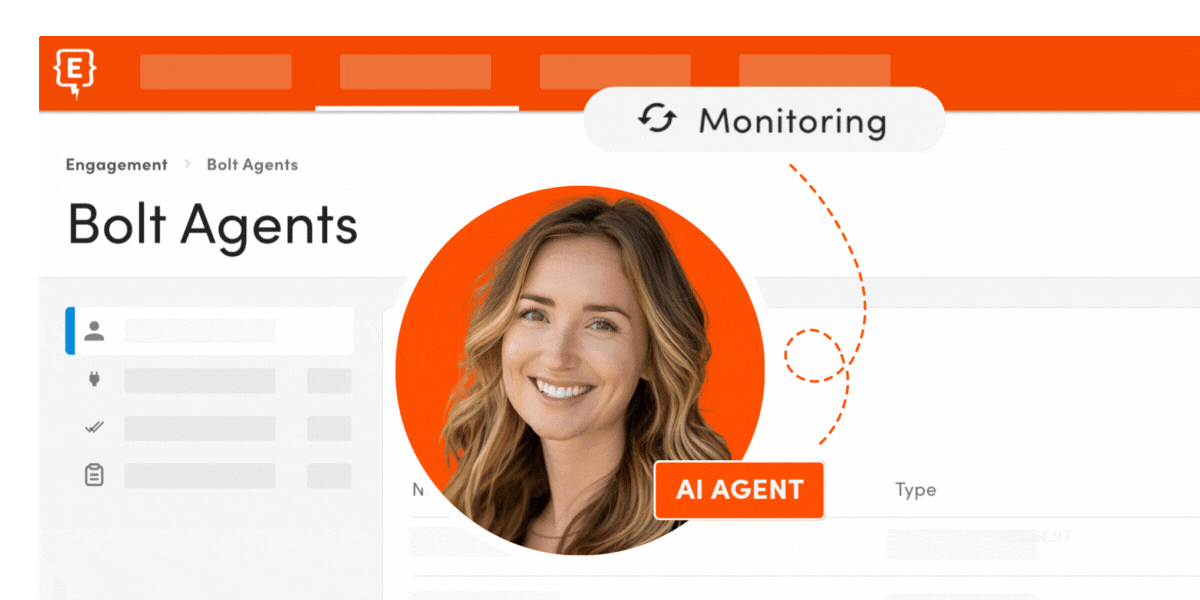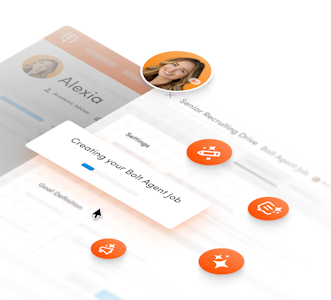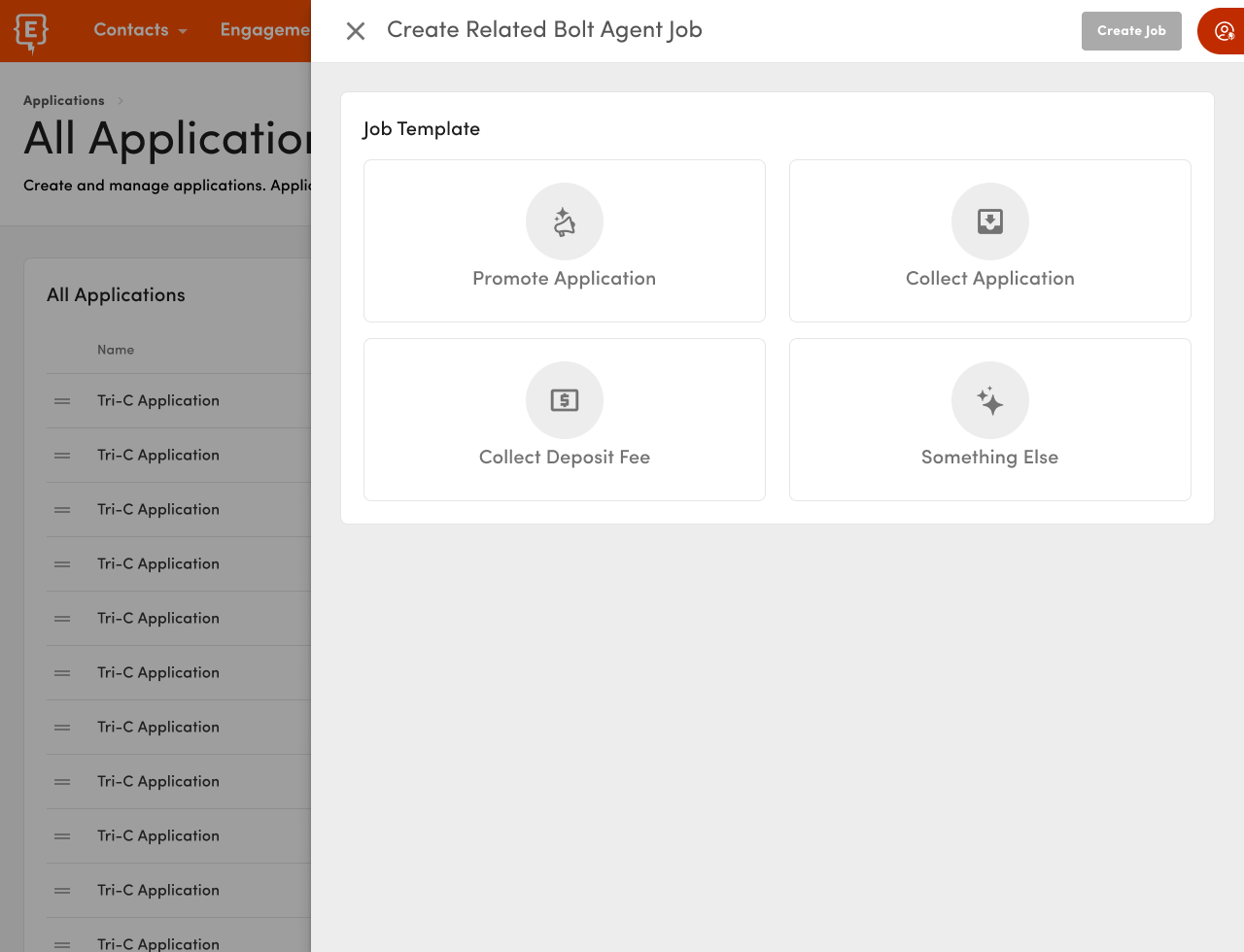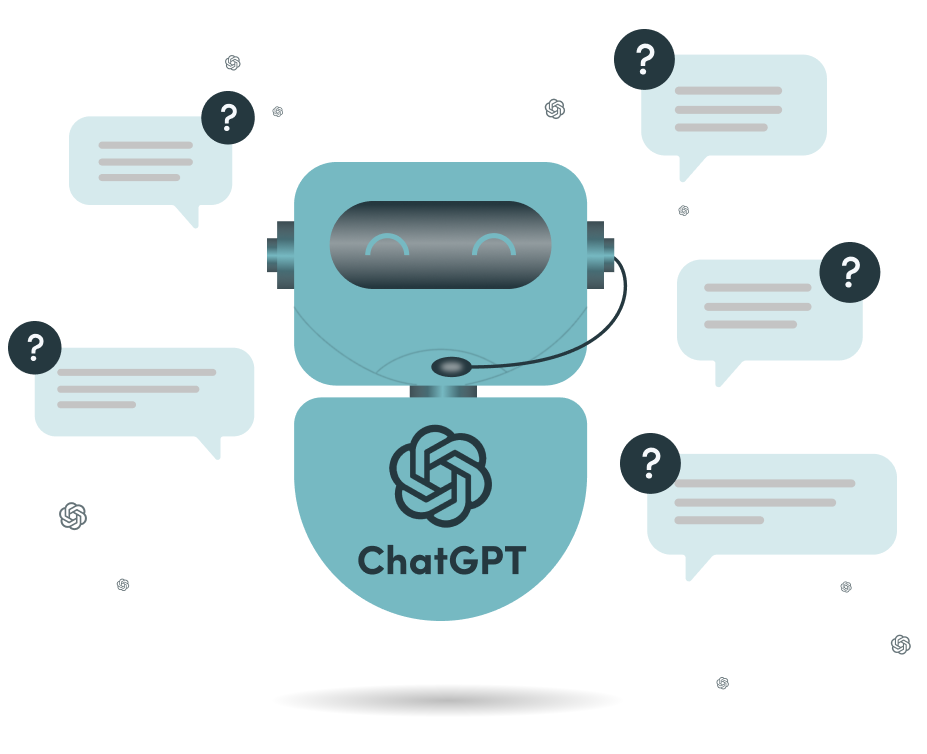Get Ahead Of The Curve: Future Proof Your Marketing Strategy With AI
by Rita Winthrop · Apr 14, 2023
Are you feeling overwhelmed by the fast-paced world of marketing? Do you feel like you're constantly playing catch-up with the latest trends and technologies?
Welcome to "Confessions of a Higher Ed CMO," the podcast that gives you an inside look at the world of higher education marketing. Hosted by Jaime Hunt, this podcast delves into the tips, tricks, tools, and tactics that separate the best higher ed CMOs from the rest of the pack.
In a world where marketing trends and technologies are constantly evolving, it can be overwhelming to keep up. Luckily, "Confessions of a Higher Ed CMO" is here to help. In a recent episode, Jaime Hunt had an enlightening conversation with Mallory Willsea, Element's VP of Marketing and Lead Generation, about how AI is the next big disruptor in marketing.
What Exactly Is AI?
If you haven’t heard by now, AI is the newest most innovative tool that’s hit the market. It's a powerful tool that can transform your marketing strategy by analyzing vast amounts of data, automating tasks, personalizing content, and even predicting customer behavior.
And the star of this episode? ChatGPT — an AI-powered language model that can help you save time in content creation and create more effective customer service chatbots.
Inside The Episode
Mallory and Jaime dive in deep to provide clear takeaways which include a deeper understanding of ChatGPT and how it works, ideas for integrating AI tools like ChatGPT into your marketing workflow, and tips (and success stories!) about how AI can improve customer service.
They also give insights into writing effective prompts that allow you to get the most out of the tool and advice on how to "future-proof" your skillset by embracing AI technologies.
So, are you ready to join the AI revolution and take your marketing strategy to the next level? Tune into "Confessions of a Higher Ed CMO" with Jaime Hunt to learn more and prepare to be blown away by the power of ChatGPT. Who knows, you may just become the next AI-powered marketing guru!
Have a listen today!
Full Transcript
Jaime Hunt
Hi, I'm a higher ed CMO and I have a confession to make. I am obsessed with ChatGPT and all things AI. I actually was somebody who thought that the zombie apocalypse would come a while before the robot apocalypse. But I'm clearly not going to be correct in that because AI is just exploding by leaps and bounds. And probably by the time this episode comes out, we will be fully beneath our robot overlords. But if we happen to still have some free will, hopefully you will enjoy this episode where we're going to be talking about how you can leverage AI for your marketing efforts, specifically, and mostly focused on ChatGPT. But of course, you know, we have to get on some tangents. So I hope you enjoy this episode.
Welcome to Confessions of a higher ed CMO, the podcast designed for higher education marketers. I'm your host, Jaime Hunt, and I am so excited to have this opportunity to share insights and inspiration. With Confessions of a Higher Ed CMO, I'm designing a different kind of podcasting experience. With each episode I'll be bringing in a guest for a deep dive into the challenges and joys we all face in higher education marketing. After each episode, you can join the conversation on Twitter by using the #higheredCMO. I would love to see this become like a book club but for a podcast. And be sure to follow me on Twitter @JaimeHuntIMC. That's JaimeHuntIMC for more opportunities to connect.
So I'm so happy to be here with Mallory Willsea who is the Vice President of Marketing and Demand Gen for Element451. Hi, Mallory, how are you?
Mallory Willsea
Hi, Jaime. I'm doing great. How are you?
Jaime Hunt
I am great. And I'm super excited to be here to talk about AI, and how marketers in higher education can use it. So before we get started talking, can you tell us a little bit about your higher ed journey.
Mallory Willsea
I've been in the industry for over 15 years, started working for my alma mater and was very lucky right time right place had the opportunity to help the institution and in some ways, higher education kind of figure social media out. I was one of the first people to start a digital ambassador program with students and actually pay them for doing online activities. And it was really quite exciting. At the time, I was fortunate to have a lot of trust on campus in order to do something like that. But as I went through that process, I realized I really loved the marketing side of higher ed. And so when the opportunity came to work for MStoner, I absolutely jumped on it. This was a digital agency recently acquired by Carnegie. But I had the real pleasure of working alongside Michael Stoner for almost 10 years. And when I left the company, I had unified both marketing and business development under one department as well as managed as executive producer, Higher Ed Live, which was up until just a couple of years ago, a really critical free professional development platform for marketers, enrollment professionals, advancement professionals, and more. When the pandemic hit, I shifted to Ed Tech. And with that came the opportunity to head a customer success team and oversee operations. But honestly, I missed marketing. Again, this is the common thread. I just love marketing so much. So when the opportunity came to join the Element team, as VP of Marketing, I absolutely jumped on it. And it feels like in a lot of ways like I'm home in the place that I love. But still in ed tech in that startup fast-paced environment. It's really kind of the best of all worlds.
Jaime Hunt
That's awesome. And Michael Stoner is sort of a legend in higher ed marketing. I feel like there's probably, you know, not many people better to learn higher ed marketing from than him.
Mallory Willsea
It's so true. I especially in those early years was like, Wait, you're paying me right now. Like shouldn't I just be like I get to sit next to you and learn from you all day? He's been an incredible mentor throughout my career and I feel you know, just really fortunate to have had so much time to soak in Have everything that he embodies, as well as, you know, just the wealth of knowledge that he brought to this industry.
Jaime Hunt
Yeah, absolutely. And I remember when Higher Ed Live kind of announced that it wasn't going to be anymore. And it was so sad to me to see that platform go away. For those of us who work in those fields, it was such a great resource. But now here, we have you on Confessions of Higher Ed CMO, which hopefully is filling a little bit of that gap. So we're here to talk about AI and ChatGPT, in particular, and I don't want to make any assumptions that our listeners understand or know exactly what ChatGPT is. So for those who don't know, what is it and why should we as marketers care about it?
Mallory Willsea
So I'll say disclaimer, right? I am not an expert by any means. When it comes to artificial intelligence, I have been a user now of ChatGPT for many months, and have been a huge proponent for not just our company utilizing this tool, but for the industry to start to really embrace it. So ChatGPT, it's, it's an AI-powered language model. And it uses deep learning algorithms to generate these very human-like responses to inputs that are more natural than the types of things that we might put into a Google search. So these models have been trained on just vast amounts of data, right? So ChatGPT, it's up to about 2021. And it's basically everything on the internet. So these huge amounts of text data. And as you input some very natural, you know, phrases and requests, it can generate things that are coherent and contextual. And in response to what you've asked. So the company that developed it is open AI. And they have just recently, you know, within this month released ChatGPT 4, so they're continuing to evolve this tool. Just yesterday, Google announced Bard, so you can join the waitlist, right? That's kind of Google's version of this AI-powered language module model. But, you know, there's so many benefits to it. I know, we're going to get into all of those. But in short, it can answer questions, it can generate content, and it can summarize and analyze information.
Jaime Hunt
I have been playing around with it for probably a month, a month, and a half. And it is actually kind of amazing what it can generate. And at the same time, it's a little bit scary. And I asked it to generate a bio for me. And the bio it generated had me working at the wrong place, attending the wrong university, you know, a whole bunch of errors in the information. But, you know, if you're asking it, in my experience, if you're asking it to do things that are a little bit more, less individualized to a person, I feel like the results are significantly stronger. Are there ways that you see ChatGPT saving time for people or helping marketers with creating content? What are some uses that you see from higher ed marketers could use something like ChatGPT?
Mallory Willsea
Sure. So in my career, from my time as executive producer, Higher Ed Live to my years at MStoner where, on a weekly basis, I was probably talking to anywhere from 10 to 20, marketing and enrollment leaders on the phone before Zoom became so prevalent. I've just talked to a lot of people over the last 15 years and there is a common thread through every single one of those conversations, whether they were looking to learn and adopt social media, responsive web design, or influencer marketing. Now artificial intelligence, it's always the same thing. It is the goal of building a more effective team impacting productivity, improving process, reducing manual labor, and at the end of the day, making a team of three feel like a team of 10. And every single one of these technology shifts, right that becomes the expectation from the marketing leader. How can I use this to make my team and me more productive? And I think that is where I've personally started to already reap the benefits of using ChatGPT so I agree, right? I too, had it write a bio for me. It was too totally erroneous, completely inaccurate. But this is the saying is garbage in, garbage out. And it's about the prompt and the quality of the prompt. So if I just go to ChatGPT and say write a bio about Mallory, we'll see. That's not a great prompt, I'm not really giving it much context. My name hasn't been Mallory Willsea my whole life and all of it, especially ChatGPT, it's only pulling data up till 2021 that's available on the internet. So now, however, if I go and say write a bio about Mallory Willsea who attended these institutions, and has these areas of expertise. And this bio is going to be used for this purpose, it's going to spit out something right because I've given it more context as it is just going to produce something that is at a higher quality. So really, when we think about getting the most out of this tool, it's about putting the most into it to get the most out. Coming back to the idea of this tool saving time, I think there's kind of two key areas that we can probably dive into. The first is content creation, right? It can help marketers generate content ideas, and write product descriptions, it can create Twitter threads for you with emojis, right? There's a lot of time and effort that can be saved in ideation, as well as content variation. The other side is customer service. And so you can use tools like ChatGPT, to build empower chatbots, and, you know, and therefore, it can analyze a lot of text and answer common questions or handle a variety of inquiries that can take a lot of workload off of humans.
Jaime Hunt
I am such an advocate for AI for customer service. When I was at Winston Salem State, and I am giving full credit to Joe Lee, who was the EVP of Enrollment Management when I was there, he got an AI Chatbot. And we, you know, had it doing campaigns both push and pull. So we could push out messages with, you know, text messages to our prospective students or our current students. But we also had it as a chatbot, where people could ask questions, and we saw some really tremendous results. When we rolled it out in the first year, we saw 30% fewer inbound phone calls, which is a perfectly legitimate metric, right? Because absolutely takes resources to staff those phone calls, we had an 8% increase in freshman yield, a 74% increase in bills paid on time, and an overall 2% increase in student enrollment. And a lot of that we could attribute right to using AI to be able to answer students' questions when they had them, because they didn't always have questions between eight and five. The way they wanted to ask the question, sometimes they were a little bit reticent to show their "ignorance" about the college process. And so being able to ask a robot, you know, basically the questions you didn't have to out yourself as not knowing the answer to them. And what always amazes me is that the number one thing said to the Chatbot was Thank you, like it was, it was so sweet when it produced like a little word cloud of like everything that students are asking was like, you know, tuition and parking, blah, blah, blah. But then there was Thank you was the biggest, the biggest word and I just think that's so sweet that they're thinking they're their little AI-powered robot for fun answering their questions. Yeah, yeah.
Mallory Willsea
Those are great metrics. Jaime, so I have to ask you, in using that chatbot, did you have to really craft a lot of the answers and you know, kind of build that out considerably in the back end?
Jaime Hunt
So it did. It did a crawl of our website and spit out what it believed the answers would be to certain questions, and then we had to kind of go through and make sure that those were accurate. And then the thing that was kind of nice is that it would if it hit got a question or hit a point where a student was like, No, this isn't answering my question. It would escalate that then up to an admission counselor who could then reach out and answer that question directly. So there was a lot of front-end work, but it didn't actually take that long to do, which I'm probably Cathy hoots who was one of the people who worked on that is probably like, oh my god, Jaime, it took so much work. But you know, it was worth it, though. I mean, it's a 36% decrease in inbound calls is huge.
Mallory Willsea
Yeah, so here's where ChatGPT changes this game too, because once chatbots built on open AI become more prevalent. It is that it significantly decreases that upfront time. You literally just give it the URLs. And it will read, understand and be able to contextualize the content just by you know, the person on the back end, just literally pasting URLs into the chatbot. So right all of this technology is evolving so rapidly. And it's just, you know, it just, it's gone from here to here, thanks to the free use of ChatGPT.
Jaime Hunt
Hey, y'all, I hope you're enjoying this episode of Confessions of a Higher Ed CMO. I want to take a moment to thank my friends at mind power who are making season two of this invalid pie podcast possible. Buying Power is a full-service marketing and branding firm, celebrating nearly 30 years of needle-moving, thought-provoking research-fueled creative and strategy. Fine power is woman founded and owned. Certified nationally recognized then serves the social sector, higher education, healthcare, nonprofits, and more. The mind power team is made up of strategists, storytellers and experienced creators. from market research to brand campaigns to recruitment to fundraising. The agency exists to empower clients, amplify brands, and help institutions find a strategic way forward. You can learn more about their work in the world by heading on over to Mind Power Inc. That's MINDPOWERinc.com. And be sure to tell them that Jaime sent you their way. So that evolution has been kind of bonkers, like, I feel like, you know, around the holidays, we had the AI lensa thing where it was producing. Like an avatar is basically of users to the point where now I'm seeing people submitting like headshots of themselves. And it's generating headshots that are like, look like real actual photographs of the person. And that's been a couple of months. And I feel like we're on our way to robot overlords. Like that's genuinely what I feel like right now. And I'm curious, so because we want to use our robot overlords for good and not evil. What would you recommend marketers think about using ChatGPT for?
Mallory Willsea
Yeah, I think there's endless possibilities here. But let's talk about a few that can have a really immediate impact. I think first and foremost, brainstorming and ideation. I can't remember now a time when I didn't have ChatGPT to help me brainstorm an idea eight, I can feed it ideas, ask it to, you know, think about them, give me variations on things, I have used this tool to help develop outlines for blog posts, as well as think helped me think through job descriptions, I've recently been hiring quite a few. And I would typically have spent, you know, hours doing research on LinkedIn or, you know, other tools, pulling recent job descriptions with similar titles and, you know, analyzing those qualifications and making sure that the alignment of skill sets is with the level of the role I'm looking for, as well as the things that I would expect that person to do. And within 10 minutes, right, like I probably took an entire day's worth of work, and was able to feed ChatGPT some really good prompts. And it came it gave me just incredible information that I was able to then go and ID on, modify and develop into, you know, some really great job descriptions. So that has been just tremendous, right? This brainstorming ideation serves as like, something to bounce ideas off of essentially. But from there, just as we have to create so much content to support, marketing, communications, whether it's for admissions, students success, alumni and advancement communications, right, no matter what I think no matter what unit you work in, in higher education, content creation, there. It's never like you never need less of it. You always need more. So if you have a blog post written but you're really stumped on a punch attention-grabbing title or something, maybe you want a funny version, you can feed that entire blog post into the tool and say write 10 headlines that are attention-grabbing, you know, designed for this or you know, will resonate with this certain persona. And then if you don't like what you get, you can ask it to rewrite it, but in a different style, right, so, so producing variations, based on the analysis of content that you might already have. I think that is a huge time saver for teams, especially teams who are looking to AB test, right, like, every marketing leader knows we need to test more, but it can often be the thing that we don't do enough of because of lack of time, well, here you go, right. Like you can create 10 different variations, 70 different variations of a subject line, a blog, post title, etc, at, you know, within seconds.
Jaime Hunt
I love this idea of using it for job descriptions, I say as I'm preparing to hire like 16 people. I've used it for generating interview questions for positions, I've used it to, I've dumped like my whole presentation into it and said write a 300-word description of this presentation. Or right, I've dumped my presentation descriptions in and said write me a catchy headline for it, I definitely have used it for outlines, like what, what are, give me an outline for a presentation on this, or a blog post on that. I have a friend who didn't want who wants to remain anonymous, who is using it for all of their program pages, all of their majors, they're having it write descriptions of what the major is based on the catalog, and then right. They used it to write scripts then for videos, and they're actually using AI to then produce those videos. So they have like aI voiceovers that are doing the videos there, the AI is pulling together images from I don't even understand where to produce the content for the videos. And it's just like, they went from thinking that it would take months and months to produce that content to you know, with the editing process. And the validating process it taking about a week to produce all of that content, which is just absolutely mind-blowing. Because if there's any problem that higher ed marketers have, I think, probably uniformly people would say it's a lack of people to get the work done. And this to me, and when I've talked to this friend of mine about this, we see it as being kind of like the internet like it in terms of its disruption and bringing you a tool that will allow you to do your job in a different way that will be more effective and efficient.
Mallory Willsea
Yeah, the internet is a perfect comparison. I mean, this is a once-in-a-generation technology shift. And it is the best thing to compare it to is the rise of the Internet. And I think that, you know, like if I certainly was too young to be in the professional world to be able to speak to the disruption that, you know, someone might have felt in those moments. But I have certainly seen some of the pushback around using ChatGPT for things like you're describing, I was actually engaged in a conversation over the weekend about a very similar topic. And, you know, the Whoa, of oh, this wasn't very good content. And my point was, well, if I use a hammer and I miss the nail, is it my fault? Or is it the hammers? Right. So again, it comes in to garbage in garbage out, like your friend must be incredibly skilled at the prompts that are required to produce very high-quality content, and enough of a subject matter expert to be able to appropriately evaluate the content that's coming out the other side, and aware enough to know that he or she needs to, you know, really analyze that content and look at it with a critical eye before actually publishing it.
Jaime Hunt
Yeah, yeah, I think it's, the process is benefited from that individual, having been the person writing that content in the past, you know, so it's like, they know what's good content, they know what it needs to have and what will be effective, and they've done in the past looked at the analytics and what are people, you know, done some A/B testing of that type of content. So it's definitely not something where you can just say like, just Just any warm body can produce content that is usable. It definitely takes that level of expertise, I think.
Mallory Willsea
Yeah. And you know, one thing we haven't even touched on yet is the use around personalization, which, in higher ed, we're focused on brand building, we're focused on communicating as close to one-to-one as possible. With individuals, especially in this season, right, we're in yield season, and the more we can get to delivering personalized messages, right place, right time, right modality, all of those things to that person, the more they are going to feel the relationship that they have been building with that institution, the more they'll feel that that is true. And I think a huge benefit to ChatGPT is, is in that creation of personalized marketing messages, you can take, you know, you can speak to Annie, you can speak to Eric, you can speak to Mallory and Jaime on a more of a one to one level based off of our preferences, interests, behaviors. And, you know, you shared incredible stats from your chatbot earlier, but those are the kinds of those are great examples of the benefits that can be reaped when we improve that engagement, right?
Jaime Hunt
And I hope so this friend of mine that wants to remain anonymous, they've been getting some pushback from their leadership about, you know, using AI to inform their work and to write the content. And I just think about when I started my career, mumbling indistinctly how many years ago, I worked, I started out as a newspaper, I was a journalist at a newspaper, and they thought the internet was a fad. And so we were getting our press releases fax to us on honestly, a fax machine that had the rolls, I don't know, you might be too young to even remember, like, it was like these thermal rolls. And so when you get in in the morning, everything that was faxed overnight would be like, you'd have to cut the pages up and all of that. But like, we would be asked by like PR agencies or the PR people at different, you know, the schools or the governments that we covered, like, what's your email address, and we didn't have email, we didn't have any of those tools, and it made our jobs so much harder than they needed to be. And, honestly, like the papers that didn't embrace the internet, which is most of them really, really struggled in the long term, it took them a long time to sort of catch up. AI is here, we can't be sitting here with our heads in the sand thinking that, you know, we're to whatever lofty to use AI to make our jobs easier. That would be like, You know what, we're just not going to use email anymore for our jobs. We're just going to, we'll have to just do it by phone calls and memos that we type up and print out and drop in interoffice mail. That sounds that's just as ridiculous, I think as it is to say we're not going to use AI. But what do you think about that?
Mallory Willsea
I agree. And I think the first step to anything is getting educated about it. And that often can take some of the scariness away from something new. I mean, change is just simply hard no matter what that change is, whether it's a positive one or not. And so when you know, I hope people listening to this podcast are feeling like this is a step towards getting more educated. I know, Enrollify has posted a number of other podcasts over the course of this month on this topic. There is still so early days, it really reminds me of when we were doing social media back in 2008, 9, 10. Like, you just got to get out there and try it. Like, get your hands dirty at the moment there. You know, we're developing the best practices there isn't, you know, a rulebook to go follow quite yet and that and that can be hard and, and challenging. For some people, right, for others. That is very exciting. For me, that's incredibly exciting. So because there's no rulebook, right, like we can, we can experiment and we're expected to experiment and, and that's fun. But it means that you're going to see results that are usable, that aren't usable. And we have to be really careful as marketers, you know because there are things that can go wrong when we garbage in, garbage out, right? There are things that can go wrong. And we have to be aware of that even in these early days of experimentation. But you're exactly right. It's here. It's certainly not going anywhere, if anything, the curve has now sharply pointed up. And you know as marketing leaders we can't be left behind.
Jaime Hunt
Well, that kind of takes me really nicely into my next question, which is that you know, these AI tools are evolving at an incredible pace. What do you predict is on the horizon
Mallory Willsea
So, we've already talked about chatbots a little bit. But I want to come back to that topic. You know, I think when we think about the application of artificial intelligence in the world, it is without a doubt going to impact everything from climate change to foreign policy, it will impact every industry, from manufacturing, to finance to health care. I can't talk about any of that. But what I can talk about is, you know, what I see as a very immediate application, that will be a game changer for higher ed. And I believe that's chatbots, the vast majority of institutions have still not adopted one. Many institutions now do have live chat on their website, but it's still a human behind the tool. And so I truly think that with the shift to open AI, chatbots will explode in usage now, and it will be impacting everything from admissions to student success, right? Retention, persistence, and well beyond as these tools get better and better. It's not just the routine inquiries from prospective students anymore. I was listening to a colleague earlier talk about when he used to work on campus and this season, the number one question they were constantly asked was, you know, the size of the beds in the dorm room? Right? Well, of course, a chatbot can very easily handle an inquiry like that. But it can also escalate conversations as necessary to staff members that you know when they require a more complex response, and it can remember the conversations it's had with you previously. So a student who's going through, say, an entire admission cycle, who may be interacting with that same chatbot over and over again, well, it's going to remember that it's talking to Jaime Hunt, and maybe Jaime has specific questions about living in Virginia and is curious about certain majors. And so it's not just learning the information to feed you, but it's actually learning you at the same time and the types of responses that solicit you to continue to interact with it. Right. So on that point of personalization from earlier, right, chatbots will absolutely help marketers and admission professionals achieve that. But taking it, you know, a step further. I think there's use for chatbots in student persistence. And we like Element451. We like to talk about early success, not just early alerts, but really identifying right, what are those circumstances, events and behaviors that might provide an early indication that that individual has a certain need or is experiencing a certain difficulty or is at risk of not coming back the next semester, and to have a human really successfully intervene and engage that individual it's, it's really hard sometimes right? And especially post-pandemic and all the mental health challenges that have come to light. As a result. Individuals might not feel comfortable walking into an office and saying I need help, but they may be comfortable texting or messaging that Chatbot. And that chatbot can be smart enough to provide that person with all of the information that they need, but also smart enough to escalate at the right point. And so the student benefits because they get guidance when they need it. And whatever that communication channel is that they prefer, on whatever topic it is that they need. And the smarter these chatbots get. It will be less about like right, the difference of an early alert which is reactionary to early success, which is a bit more proactive.
Jaime Hunt
I love this conversation because I think if you start to think about the shifting demographics and what a lot of people call the enrollment cliff, the persistent retention and graduation rates for the students that we do bring in is becoming even more important. And you know, I know I mentioned at WSU us using the Chatbot for prospective students but we were also using it as we had a retention bot is what we call it first. importing those students. And, you know, this was six years ago. So it wasn't sophisticated at the level of what we would probably be able to do today, but being able to support students, and like I mentioned earlier, that comfort level of saying, I don't know the answer to this question, but I don't want another human being to know that I don't know the answer to this question. Or an early cry for help or, you know, just getting a sense of who that student is, and what their needs are really, really early. I mean, I think personally, we have a moral imperative to do everything that we can to make sure every student who enters our doors, graduates, because otherwise they get debt, and they get time spent without a credential. And it's, it's just unethical, I think, to not do everything in our power to help them persist. And if we can use AI to do that, I just don't know why we wouldn't.
Mallory Willsea
And I think this is particularly challenging for community colleges. And not to say it's, it's not for other types of institutions. But community colleges tend to have a demographic of students that are older, maybe returning back to school, having previously stopped it for a variety of reasons. These students are probably at a higher likelihood to not be in the 18 to 21 age range. So they have different maybe family needs or financial pressures mean, there's a lot of challenge for community colleges, term to term to keep their students enrolled. And I think that this is where, you know, this technology can have just an absolutely huge impact. As, as well-intentioned as any staff member is on a higher ed campus. There is a point at which at the end of the day, you want to go home, right? And I know so many of us in the education, industry work nights and weekends. And I remember in admissions, it was like the month of July was like finally, you know, we could take it take a vacation. Like it's so exciting. That's a huge benefit here, right? The chatbot can be available 24/7. And so if it's, you know, if that student needs that intervention, or that resource, or you know, has a question about the size of the beds in the dorm room, and they're thinking about it at 10 o'clock at night, while they're watching The Bachelor, you know, your phone's not going to ring, they can go and ask this tool. So again, tying it back to that piece around productivity and making a team of three feel like a team of 10, it can have a huge impact for the people who work on the campus as well, as you know, from that lens,
Jaime Hunt
that's a really good way to think about it. It's almost like a team of employees who are on the clock all the time, and never will burn out and never will go on vacation and never will have a sick day or never will catch COVID They'll just, you know, always be there to support you.
Mallory Willsea
The power of 1000 marketers without the headache of managing exactly.
Jaime Hunt
The best part about being a leader as supervising. I say that was great sarcasm. I think one of the things that has led me to be successful in my career is that I've always been a pretty early adopter of things. So, you know, one of the first websites that one of the first daily news websites, and you know, that was something I built one of the first mobile fully mobile websites. That was something I did a bus tracker, a, you know, fill in the blank, you know, I was always like, that's cool. I want to do that QR codes, like, way before they were cool. Then they stopped being cool. And now they're back, you know, all of that. But, you know, so I'm, like, really excited about AI. But I envision, you know, there's gonna be a point where it's like, how do you stay on top of everything? And I'm interested in your thoughts on how marketers can sort of future-proof themselves in the space of emerging technology.
Mallory Willsea
Wow. And genuine sense of curiosity is sometimes half the battle. I think it takes time and investment to learn. We were talking about the need to be educated on AI a little bit ago. And I think that's part of the answer to this question. We do all work so hard throughout the day, but finding the time for our own professional development and the time to experiment, right, that genuine sense of curiosity and putting in the effort when many others won't, right that's that is an area where one can be successful. But even the question of future-proofing is just interesting because while AI has rapidly expanded in usage, thanks to ChatGPT, largely, it's not new, right, like, like, I know, our team at Element, we've been using Jasper, which is another generative AI business tool to help with content creation for some time. And we've talked about the images that can be created through these tools. I think that in the future, these things will continue to be very easy and more and more accessible and at lower and lower costs. But the idea of future-proofing, it's like the future was here five years ago. Maybe that's the point, right? The future has been here. And so in some ways, we are actually now catching up like people have been talking about AI for decades, it's just because of the most recent advancements in that technology, that it's become more accessible. And when it comes to future-proofing, the idea of making sure that you have really clean and organized information will help set you up as a marketer for success. So organizing your data, and getting really good at prompt engineering, it is a skill now to learn. And those are ways to have an immediate impact. But to also ensure that over the course of the next handful of years, these tools are able to ingest and understand more and more types of information in different ways. Ensuring that the content that you are creating and have created is clean and organized in such a way that the tool will correctly analyze it is, you know, one way to protect the brand that you represent and future-proof.
Jaime Hunt
Yeah, if you're, you've talked a lot about garbage in garbage out. And I feel like, you know, I've had the experience of doing a prompt and getting, like almost, I mean, truly purely garbage. It's like presenting the information. Like it's like a thesis almost just like, you know, very stiff and stilted and awkward. And, you know, it's really, there's really a knack to it. And I know that element has a guide that I recently downloaded. And tell us a little bit about how that guide came to be. How did you figure that out? How did you figure out prompts? Did you just practice or, you know, how did you get to that?
Mallory Willsea
Yeah, it just a lot of trial and error. Ardis, our CEO has been a proponent of AI now for a couple of decades. And so I think he's been eagerly awaiting the day when a tool like ChatGPT would hit to make this technology so much more easier to understand and use. I swear he's probably been thinking about prompt engineering for many, many years. But as he started playing with this tool, encouraging me and the marketing team to play with this tool, you know, we were able to kind of quickly learn how to insert information in such a way that it became very conversational. So you can drop, you can go to one of your webpages, you know, copy an entire block or entire page of text, pop it in and ask ChatGPT to respond ready, once it has, you know, analyzed and ingested. So that can be step one, right, you don't have to do it all in that first prompt. So you give it the information. And then you can say what you want from it, as well as guide it with best practices. So the first time I went into ChatGPT to help me write some digital ad headlines for LinkedIn. It didn't produce very good content. And it's because I didn't give it very good information. It was like a two-liner. I went back, I dropped in more context about the product and then gave it best practices for LinkedIn digital ads, asking it to give me 10 variations. Okay, that got a little better. But I was actually looking for something that would be kind of funny, you know, I know the higher ed crowd like, we laugh about some nerdy things i times like we like cats and Star Wars like Superman like you know, like we have fun in this industry. We're not like, you know, super buttoned up and then on top of that I keep PTS pretty verbose. Yeah. So I had to say to it, like, make this funnier in this style, and make this shorter, right? So it's a lot of iterations over and over again. And if you don't like the response, you just regenerate. Yeah. And I'll give you 10 new ones, right? So a lot of trial and error went into developing that current prompt engineering guide. And we're actually going to be doing another around yields, specifically, in a couple of weeks. So we'll have a session and then another guide, as a result, I think we have a great opportunity to help educate the market right now, because of just some genuine interest internally around all of this. And why not right, because somebody who, who is inspired by some of these prompts, can then go and maybe create their own guides, like, this can be something that our community learns together. And that really excites me. Like, I think this is just such a pivotal moment for us. And we, as marketing leaders, have that maybe responsibility to help educate each other on what we're learning.
Jaime Hunt
It feels very much like when social media was first a thing, right? And like, how are we going to use this and how, and people just openly sharing, this is how I'm using it. This is what I'm doing. This is how we're, you know, successful with it. These are the results we've had, this is the lessons I've learned. And we have such a giving profession, which is, you know, I've mentioned it many times on this podcast, that I just love how this profession is full of people who are willing to share what they've learned. But I this feels like another, you know, pivotal moment. I know, we've said that already on this, but you know, where we can really make a difference and stake a claim on this. And I hope that, you know, listeners, I guess I would ask you to help us our listeners a little bit on how would you if you were facing some pushback from leadership, if leadership was saying, Oh, no, you can't be using AI to do your work. What would you what talking points? Would you give? What would be your elevator pitch for why marketers should be using AI?
Mallory Willsea
Well, like ChatGPT I can be verbose. So I it's gonna be a long elevator ride. But that's a great question. And I think sometimes those fears are stemmed from some of the ethical concerns that exist, right. And also from anything new is change and change is hard. I think there have been enough examples out there, like Microsoft's AI chatbot, Tay, where, right, we've seen AI, go in the wrong direction and learn the wrong things. So if I'm talking to a leader who's maybe more on more on the hesitant side, and is saying, wait and see, I would remind that person that there is so much productivity that can be gained. And you can put processes in place to ensure that those mishaps and mistakes don't happen on your team due diligence. And being truthful, those are two things that are I think, required, if you're going to use AI or ChatGPT you can't just copy and paste what it spits out, you really need to spend the time to look at it, analyze it, verify if the information is correct. And in higher ed, we, you know, we talk a lot in education about making sure you're attributing your to your source. And so if you're using ChatGPT not pretend you're not. But then also, you know, thinking about the source of the content that it's pulling from to adjust was listening to podcast earlier where there was a great point about you can ask ChatGPT to produce something in the style of you can ask some of these images AI generators to produce something in the style of, well, whoever that person is, you're asking it to produce in the style of might not actually want right, especially as an artist like might not want their work copied in that way right. So you have to be careful about that. The ethical concerns are real acknowledging them as important. Not pretending they don't exist is important. But reaping the benefits right pulling it back to real ROI. The stats you When shared earlier, the amount of human power that AI can lift will allow someone to focus on different activities, higher value activities, marketing, strategy, brand strategy, things that these tools can't do. So when would you rather your team, you know, focused on writing 10 different headlines or, you know, variations of things that could literally take all day? Or are the job descriptions like, literally taking all day to research? Or would you rather me get that job description out a whole lot faster to start actually interviewing candidates and getting somebody in the role? You know, weeks earlier? It's, I think, I think the argument comes down to productivity and the return on the investment.
Jaime Hunt
I love the idea of using it for job descriptions. And, you know, for the things that will help you to be more productive in the long run. I think about, I remember, Vanderbilt a month or so ago, kind of gotten hot water for writing their message about the Michigan State shooting using chat TBT. To me, there's a little bit of common sense there, you know, like, don't use a robot to write something in a moment that requires that human feel. But at the same time, I don't want people to think that they have a knee-jerk reaction that there's no use for ChatGPT because it kind of produced this very milquetoast terrible. I'm sorry, Vanderbilt colleagues, but you know, this, this letter that was very obviously written, I felt like by AI, it didn't have any heart and soul to it, it was sort of vague platitudes. It didn't wasn't even really connected to the incident, it didn't address anything specific about the school, you know, so think about that, you know, don't use it for your, for those things that really need that human connection.
Mallory Willsea
Now, that could have been a first draft, right? Because there are some maybe key points in that letter. But that was by no means a finished product, right? And it was missing that human intervention. Yeah, that's, that's a good example. It's challenging, and it's challenging to know, especially in the early days where that line is, too. And it's going to take some crises and mistakes, to help define some of those lines, unfortunately, comparing it to how higher ed collectively figured out how to use social media together, you know, 15 years ago is a great example, like, I had, I had students that should have never been getting paid to tweet. Because some of the stuff coming out on Friday and Saturday nights wasn't probably what the administration was looking for. But at the same time, all of the good on the other side, you know, kind of outweighed it, I often would compare that to giving campus tours, like we're so comfortable sending 15 families to walk around the campus with an individual and nobody's trailing them to listen to what that student is saying. Like it's the same kind of principle was with that that early-day digital Ambassador book. I'm not going to trail what all those students are doing, but it took some mishaps to learn and then that began to develop guardrails and, and identify best practices. And I think we're going to over the course of the next three 612 months, right, we're going to start having good and bad examples that will help us start to understand how to better use these tools, and what applications of them are, you know, become best practice.
Jaime Hunt
Yeah, yeah. And I certainly don't want to come across as being very critical of our colleagues at Vanderbilt. I mean, I think the intentions were good. And it was using a tool that they saw a lot of potential with, and but I think that it kind of taught us all a lesson about, you know, the best way to use the tool and the best way to take advantage of the technology. And what when you mentioned guardrails, I was thinking about, like, you know, one of the guardrails needs to be really critically reading what it spits out and ascertaining if that is appropriate for the situation. If it is capturing the nuance, I mean, there's a big difference between saying computer science major will, you know, get you this kind of A job and you'll take these kinds of classes versus a real, this is our institutional response to this tragedy that happened at another institution. Those are just very, very different types of communication. So as we're wrapping up, you know, what takeaways would you want listeners to take from this episode?
Mallory Willsea
One of the key things is that this still is early days, there's still so much experimentation that's happening, and there actually aren't a ton of higher ed specific resources, talking about the appropriate uses of ChatGPT, and how to integrate it into our work prompts to Enrollify, not just this podcast, but the whole series that Zach has recently done around artificial intelligence, all four episodes are out and they are so binge-worthy, Inside Higher Ed's Call to Action blog is I know, starting to publish content around this as well. So, you know, slowly, but surely, those resources are coming, of course, at Element451. We're doing everything we can to create AI focus resources, too. But we are in the earliest of days, where it is a matter of not being afraid of experimenting, right? And, and not worrying or being defensive about, you know, AI, taking the creativity and the writing jobs. But finding the ways that it can actually enhance our creativity and our writing. You said it. So clearly, this is not going anywhere. In fact, this, we're at the beginning of this boom. And so incorporating it incrementally into our workflows and processes, finding the ways that it can make small teams feel really mighty, by allowing them to free up time for higher value activities and stop answering the question of what size bed is in the dorm room. There's so going to be so so many applications. And starting small is fine. Starting with just some ideation is great. Send it a blog post, you've already written a subject line you already know, and ask it some questions just to get used to the tool right the times now, we can't be left behind. And embracing technology is going to be our path forward.
Jaime Hunt
I 100% agree. And as we're talking, I'm thinking, I want to do a little session with my team about ChatGPT and kind of maybe ideate ways that we could be working it into our workflow. So thank you for that, that sort of inspiration. So Mallory, where can people find you? If they want to chat with you a little bit more about this?
Mallory Willsea
Sure. Well, I'm on LinkedIn, I'm still on Twitter so @MalloryWillsea on both of those platforms. Please connect with me, I would love to continue this conversation in those social spaces. Or, you know, you can just find me at this desk, five days a week. Yeah, MalloryWillsea@element451.com. So I love connecting with other higher ed leaders who just want to ideate and take this conversation further. Or it is so interesting to learn from each other, and how we're finding success with new technology. So I welcome these conversations, one on one, or to many in these social spaces. So please find me this is a topic that's really close to my work. But also, you know, I'm just like very highly interested in this. Jaime, I was telling you before we jumped on last night, we lost internet and we actually had ChatGPT or actually, it was Google's Bard. Write a story about the night we lost internet and you know, my husband and my dog and all the things we do so I am finding I had it right my friend a birthday rap once like, I mean, they're outside of all these professional use cases. I am finding so much joy in AI personally too. So we could go on for hours. But seriously, please find me. Let's talk AI and I'm so curious to hear about all the different applications that people in higher ed are finding for it.
Jaime Hunt
I love it. I think it's safe to say that Mallory and I are both ready for a robot overlords. We're like, Yeah, we're all in on the robot. Oh, it's funny, because about 15 years ago, one of my colleagues and I, he's no longer in higher ed. But I said that I thought that zombie apocalypse would be first and he said he thought that the robot overlords would be first and I think he's on track to win. I think he's on track to win. Well, thank you so much for coming on. And listeners, I really would love to hear from you. If you're using AI ChatGPT as part of your workflow, please share that information. We are learning from each other. This is the dawn of a new age, I think in higher ed marketing. So please join in the conversation on social media with the hashtag higher ed CMO. As always, you can find me, Jaime Hunt on LinkedIn. JaimeHuntIMC on Twitter JaimeHuntIMC on Twitter. As always, let's go bust some silos but I'm gonna put a twist on it. Let's go bust it with some artificial intelligence

Watch AI Transform Your Marketing
Automated campaigns at scale, intelligent chatbot, generative copywriting tools, hyper-personalized communication, and smart segmentation for applications, people management, and tasks.
Watch it in Action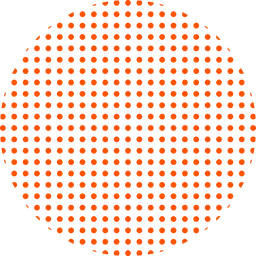
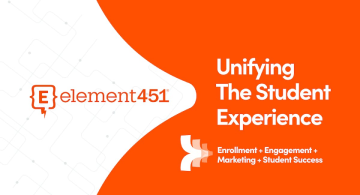
About Element451
Boost enrollment, improve engagement, and support students with an AI-driven CRM and agent platform built for higher ed. Element451 makes personalization scalable and success repeatable.
Categories
New Blog Posts
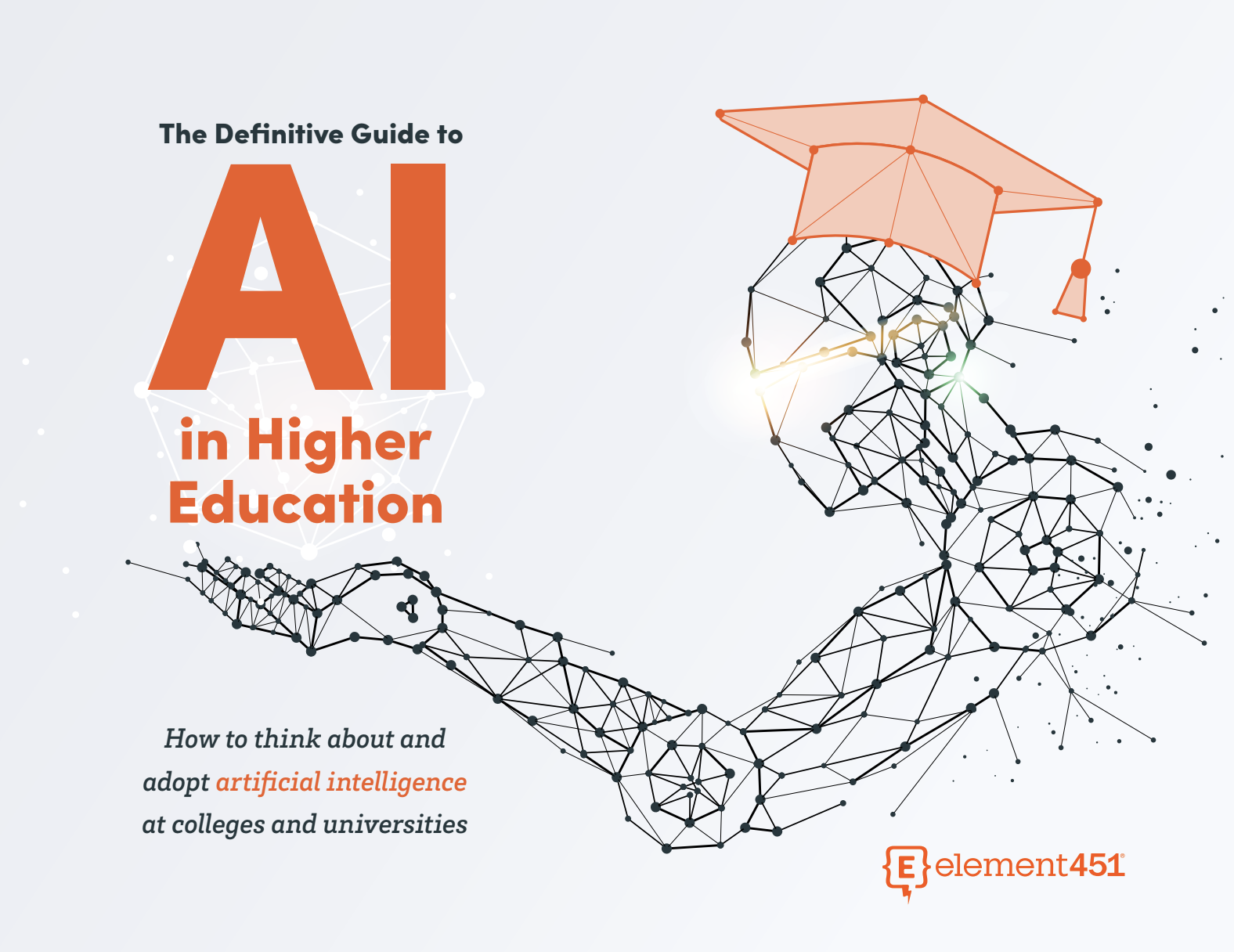
The Definitive Guide
AI in Higher Education
Bridge the gap between the latest tech advancements and your institution's success.
Useful Links
Related Articles

Talk With Us
Element451 is an AI-driven CRM and AI agent platform for higher education. Our friendly experts are here to help you explore how Element451 can improve outcomes for your school and students.
Get a Demo


